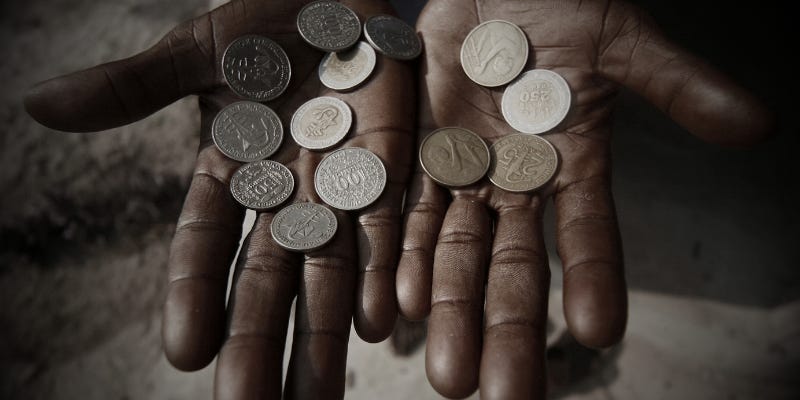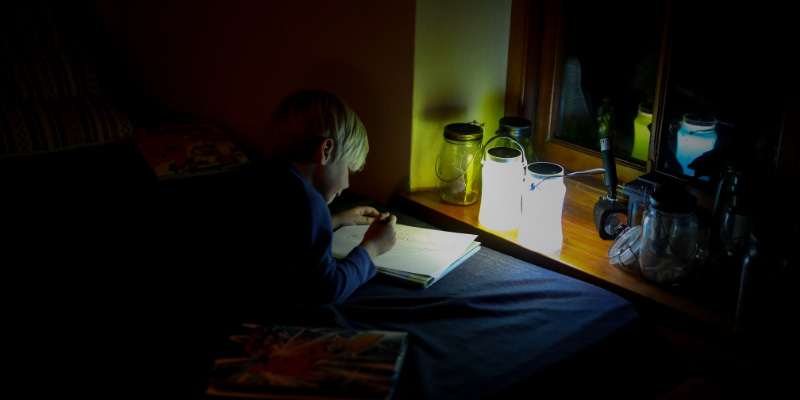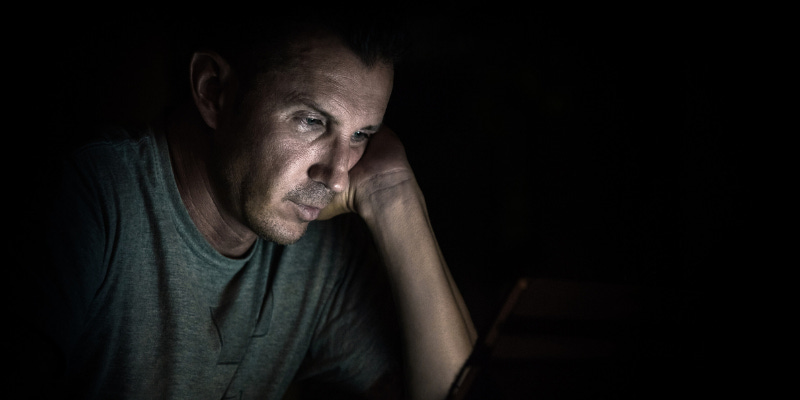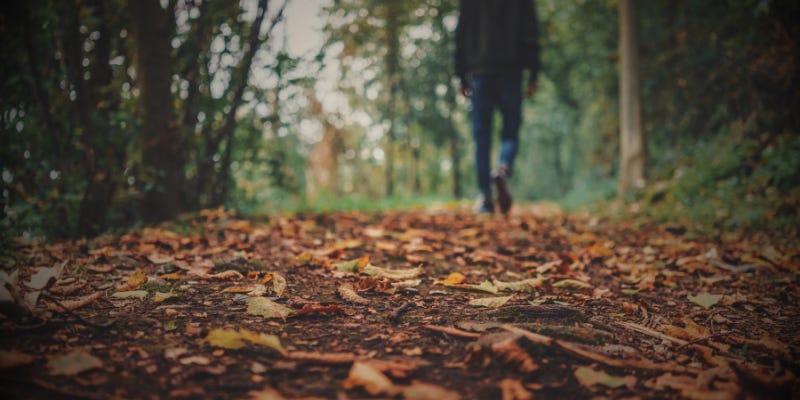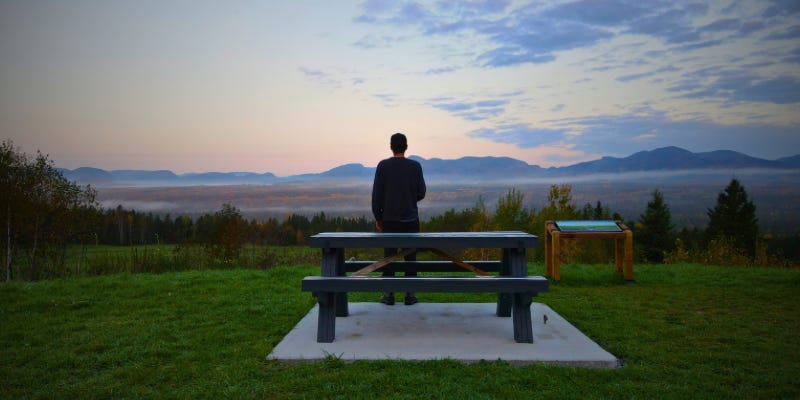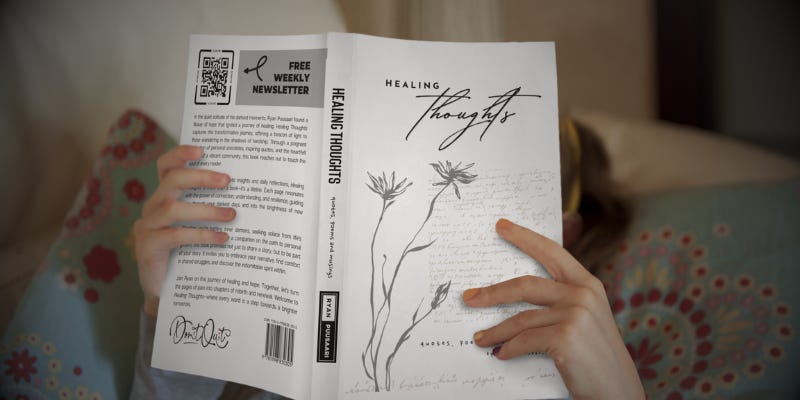hollow wallets, heavy hearts
Sometimes, it’s not the lack of money that breaks you—it’s the absence of something to hold on to.
NOTE: This is the 4th edition of the Live Out Loud series. To view the full series please visit the table of contents. Make sure you never miss an issue, hit the subscribe button below.
Poverty wasn’t just about having an empty wallet—it was like being hollowed out from the inside. A slow bleed that drained everything.
Money—Sure. But also joy, hope, and any sense of security.
It was clothes pulled from discount bins, worn to threads, seams barely hanging on, the kind that made you wince when you saw your reflection.
It was birthday parties without balloons, without gifts, without cake. Just another day on the calendar, ticked off like all the others.
There’s this one memory I can’t shake. I woke up one morning, did the usual stretch, looked outside, and our car was gone. Just... vanished. A big, empty space where it used to sit.
My dad’s face had a tight, pained look that said more than he could.
He tried to explain—banks, repossession, payments missed. But it was all noise, like static. None of it landed. All I knew was that our car wasn’t coming back.
That was life.
Always shifting, always slipping out of reach.
My dad worked himself to the bone, grinding away for hours on end, like he was fighting an invisible enemy. And losing. He was out there, struggling, but he left me in the dust.
Home was just this hollow space filled with nothing but a ticking clock and the hum of my own thoughts. So, I started drawing. Houses. Big ones, with endless rooms and space to breathe.
Those sketches were my refuge. Each line a lifeline, a thread pulling me toward something better. I wasn’t building castles in the sky. I was building walls around my hope, just trying to protect what little was left.
But poverty wasn’t just about losing things.
It was about losing yourself, bit by bit. It strips away your innocence, makes you grow up too fast. There’s a certain weight to knowing you’ll never have what the other kids take for granted.
But still, it wasn’t all bad.
Poverty gave me something too. It taught me how to find joy in the little things—a dripping ice cream cone, a moment of quiet, a hand-me-down toy that felt like treasure.
It forced me to be patient.
To wait, and wait some more, when that’s all you’ve got left.
Most of all, it lit a fire. I wasn’t just going to scrape by.
No.
I was biding my time.
Waiting for the day I could break free, leave my mark, do something that meant something.
Compassion came with the deal.
When you’ve stared into the void long enough, you recognize it in others. You can’t ignore it.
Poverty taught me how to see people, how to care, deeply.
And it gave me this relentless drive to build something bigger than myself, something that lasts. Because I never wanted to see that kind of emptiness again— in me, or anyone else.
For me, those drawings were both a refuge and a rebellion. A way to breathe when life felt too suffocating. When everything around me screamed chaos, those sketches whispered order, whispered better.
I wasn’t drawing to escape.
I was drawing because I believed, deep down, that something better was waiting.
Somewhere out there.
And I could build it, even if just on paper.
I used to show those sketches to my dad. Sit down with him, tell him stories about a future where his hands weren’t calloused, where the grind didn’t own him.
“Look…”
I’d say, pointing to a room flooded with light…
“that’s where we’ll sit. No work. No pain. Just us.”
I built rooms filled with sunlight, with shared dinners, with quiet afternoons where the only sound was the wind rustling the curtains. Rooms that had no space for anger or addiction, no room for the shadows we lived under.
Those sketches weren’t just houses. They were my plea. My way of telling him—without saying it—that I needed him to pull through. To beat the bottle, to shake off the weight of everything holding him down.
Every time I drew a new room, I was sending out a silent promise: we could have this. We could be this. We just needed to break free.
Those dreams were my anchor. My lifeline in a neighborhood that felt like it was trying to pull me under every chance it got.
While my friends gave in, let themselves drown in the mess around us, I kept drawing. I held onto those visions of a future where it didn’t have to be this way. My pencil became my paddle, my sketches the raft I clung to as the world swirled, chaotic, around me.
It wasn’t about wealth or possessions. I wasn’t chasing money.
I was chasing a life free from the misery that haunted my father’s eyes, a life where we didn’t have to look back at the pain or the past. And with each sketch, I wasn’t just a kid anymore—I was an architect of something better.
Growing up in a whirlwind of financial stress and emotional drought leaves a mark. Not just on your wallet, but on your soul. It seeps into everything. It rewires how you connect with people.
For me, it turned into this default setting: caregiver mode.
Always putting others first.
Always trying to offer the stability I craved but never had.
That instinct wasn’t just a habit. It was born from the emptiness I felt as a kid, aching for time with my dad. He was always working. Never home.
And in my child brain, I started believing that love meant financial security.
I told myself, "If I could just make enough money, he wouldn’t have to work so much. He’d be here."
That belief stuck with me.
Grew.
Mutated into a drive that consumed me.
Work became my obsession. Not just to survive—but to succeed.
To achieve. To prove I was enough.
I wanted to carry the world on my back, not just for me but for anyone who needed me. I couldn’t just make it—I had to make it for everyone. Friends, partners, even strangers sometimes.
I couldn’t stop.
And yeah, it worked. On paper.
I climbed the ladder, checked off all the boxes—money, success, promotions. But along with that came something heavier. A pressure that followed me everywhere, pushing down on my chest.
Every accomplishment was just another weight on my shoulders.
But in that crushing pressure, I learned something about myself.
That I was stronger than I thought.
That I could keep going, even when it hurt.
My ability to sacrifice for others became my badge of honor, a weird testament to the power of what your childhood teaches you, even when it’s broken.
But then, something clicked. All that giving, all that doing was draining me dry.
It hit me one day—hard—that I’d never stopped to care for myself. My needs were lost somewhere in the shuffle, buried under everyone else’s problems.
So I had to step back.
Had to learn the hard way that taking care of others is great, but you can’t keep pouring from an empty cup.
I started setting boundaries.
Learning that it’s okay to say no. That self-care isn’t selfish. It’s survival.
That’s the real journey I’ve been on. Figuring out how to be there for others without losing myself. Balancing the push to succeed with the pull to just be.
Every day, I wake up knowing I can rewrite my story. That I don’t have to be stuck in that cycle of overachieving, over-giving, over-everything.
There’s room for both—giving and receiving, hustling and resting.
And now, I’m learning to live in that space in between.
Life’s chaos, all those shifting tides, handed me something unexpected: the ability to see the power in small things.
You know, the stuff most people overlook.
Scarcity has a way of doing that—it makes the ordinary extraordinary. Suddenly, the mundane wasn’t just background noise. It was the whole soundtrack.
Forget the big moments.
It’s the small ones that make life sing.
The crackle of leaves underfoot, each step a brushstroke of amber and gold.
The first sip of coffee on a freezing morning—pure poetry in a cup.
Or the smell of rain, that earthy scent rising up like a secret the world’s been waiting to tell. It was like the universe was nudging me in those moments, telling me…
“This is it. Right here. This is what you’ve been missing.”
—Ryan Puusaari
P.S. Your time and engagement with this edition mean a lot. Every reader adds value to our journey together. Thank you for being here!
P.P.S. “We weren’t just missing things—we were missing ourselves, piece by piece, until all that was left was the fight to stay whole.”
Healing Thoughts — A Journey of Reflection, Poetry, and Healing, Made Possible by You
Healing Thoughts isn’t just another book—it’s a living, breathing collection of reflections, inspiring quotes, and poetry, all pulled from the heart of this community.
Through the highs and lows, the moments of growth and vulnerability, your support made this book a reality.
Each page is a step toward healing, filled with wisdom, introspection, and emotional insight to guide you on your personal journey.
This book is more than just words—it’s our story.
Before You Go
Dive into the latest posts in the archives.
Learn more about me, this newsletter, or my daily texts.
Explore my journals and books over at Wood Island Books.
Follow me on social media for daily inspiration and updates.
Check out my recommended reading list for must-read books and authors.
View my exclusive merch collection—designed to inspire and uplift.
Have questions or thoughts? I am just an email away—reach out anytime.





